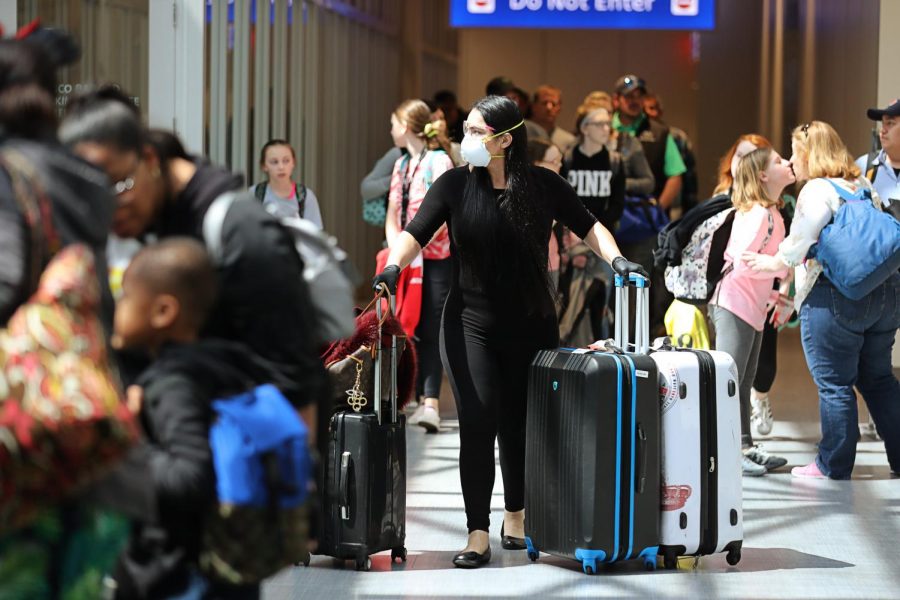Navigating the Pandemic
As COVID-19 threatens spring breaks nationwide, warnings regarding the danger of travel should not go ignored.
PHOTO | MCT Campus
Some arriving travelers at the Orlando International Airport wear masks Thursday, March 12.
As spring break dawns on students across America, questions of health and safety regarding the outbreak of COVID-19 arise: is traveling really worth the risk?
Many dismiss the severity of the disease, as deaths have primarily been among older or at-risk populations, including people with current medical conditions like heart or lung disease. That said, it is ignorant to think that travel during a pandemic will not affect a young, healthy person. It has been noted that younger people can even serve as asymptomatic carriers of the virus, making it difficult to diagnose and therefore difficult to take the proper precautions. It is also very possible to be a carrier of the virus for days before showing symptoms. These facts in mind, air travel seems irresponsible and dangerous.
It’s tempting: airfare is falling fast amidst this corona crisis. A ticket from MCI to Hawaii can go for around $170, which is about 62% less than years before. Before European travel was suspended, flights to Italy and France were at all time lows. It seems like a dream, but it is surely too good to be true. There is a reason for this sudden disinterest in travel that should not be discredited as an overreaction. Not only does airplane travel open passengers to the possibility of viral exposure, but also the possibility of quarantine. Close proximity to an infected person on an airplane can result in up to 14 days of quarantine, as the virus is highly contagious, spread airborne through respiratory secretions.
If flying over spring break is truly a necessity, there are ways to prevent disease contraction of any kind while onboard. Airplanes are equipped with surgery-room-level ventilation, so turn the vents on high. Disinfectant wipes and plenty of hand washing can also help, but there is always a chance of contracting some sort of virus in public spaces. This said, when entering an aircraft, passengers must trust those around them to be taking the same precautions. These expectations are often not met. The prospect of infection simply is not worth the risk of travel, especially for at-risk citizens.
Critics accused the Trump administration of bungling the launch of required medical screenings for airline passengers arriving from Europe.
In some cases, travelers waited in airport lines for more than eight hours. https://t.co/dWyaC1jDy6
— NPR (@NPR) March 15, 2020
As of now, travel to Europe and parts of Asia is suspended and domestic travel is highly discouraged, especially cruises. Crowds of travelers from Europe await medical testing in international airports across the United States. Travel is not worth the risk of infecting strangers in the air or loved ones upon return. It is not worth an extra two weeks off of school or work while under quarantine. It is not worth contributing to the rapid spread of COVID-19 and taking treatment away from those truly at risk when hospital beds are full. The point of canceled classes and quarantines are to make case numbers steadily manageable for hospital staff, so do not be selfish. Stay home and stay healthy this spring break.



